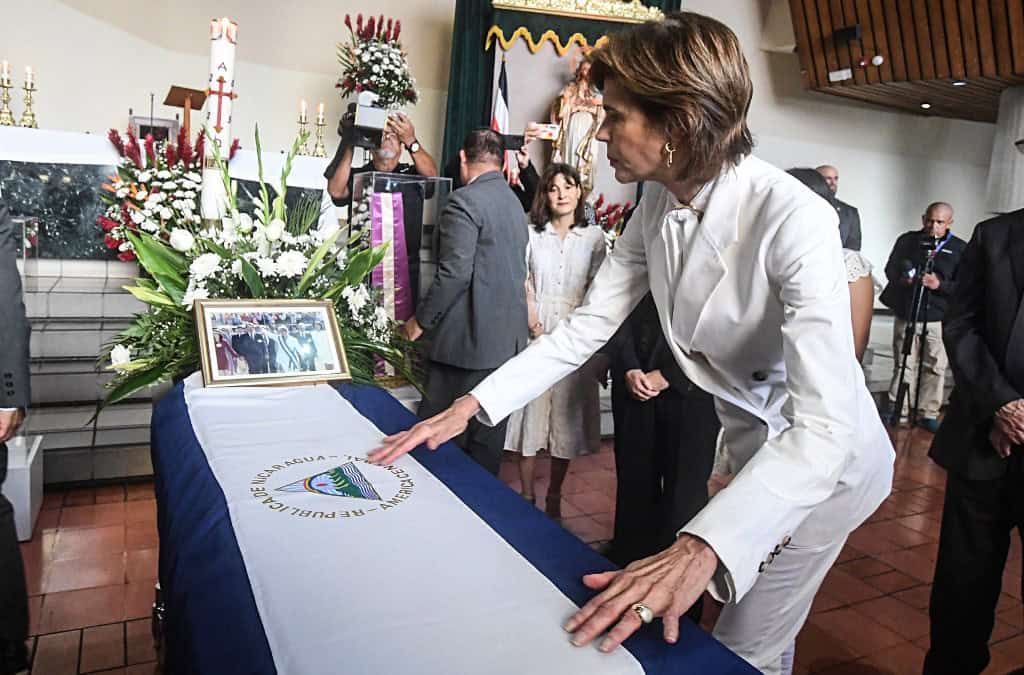Former Nicaraguan President Violeta Barrios de Chamorro, who died Saturday at the age of 95, was honored Monday in a funeral mass held in Costa Rica. Her family vowed to return her remains to Nicaragua once it becomes a “republic” again. The urn containing the remains of the woman who brought peace to Nicaragua—after defeating former Sandinista guerrilla Daniel Ortega at the polls in 1990—was draped with a Nicaraguan flag during the ceremony at the Sacred Heart of Jesus Church in San José.
Two of her children, Cristiana and Carlos Fernando Chamorro, and several of her grandchildren were present. Former Costa Rican President and Nobel Peace Prize laureate Oscar Arias and Nicaraguan singer-songwriter Luis Enrique Mejía Godoy were also in attendance, among other public figures.
“She opened her heart wide to the hope of a free homeland, in peace and reconciliation, to become the president of all Nicaraguans,” said Cristiana, who thanked Costa Rica for giving her mother “a dignified and safe burial.”
“Thank you, Mom […] for your immense example of love and generosity. I promise that when Nicaragua becomes a republic again, you will return to rest in peace in your homeland,” said Carlos Fernando at the mass, which was also attended by Nicaraguans living in exile in Costa Rica.
Dozens of former presidents from Latin America and Spain offered condolences and praised her contributions to peace during a critical time. The first woman ever elected president in the Americas, Barrios de Chamorro governed Nicaragua from 1990 to 1997. She had been transferred from Managua to San José in October 2023 to be close to her children, who had been exiled by the current Ortega government.
A housewife in 1978, she was thrust into politics after the assassination of her husband, journalist Pedro Joaquín Chamorro, by the Somoza dictatorship. Known affectionately as “Doña Violeta,” the former president passed away after a long illness caused by Alzheimer’s complications and a stroke suffered in December 2018.
Ortega, a 79-year-old former guerrilla who was president from 1985 to 1990 and has held power again since 2007, is widely criticized by opposition figures, foreign governments, and international organizations for dismantling the freedoms and democratic institutions Barrios de Chamorro once helped restore.
On Saturday, the Ortega-Murillo government acknowledged her contributions to peace but did not declare a National Day of Mourning.






